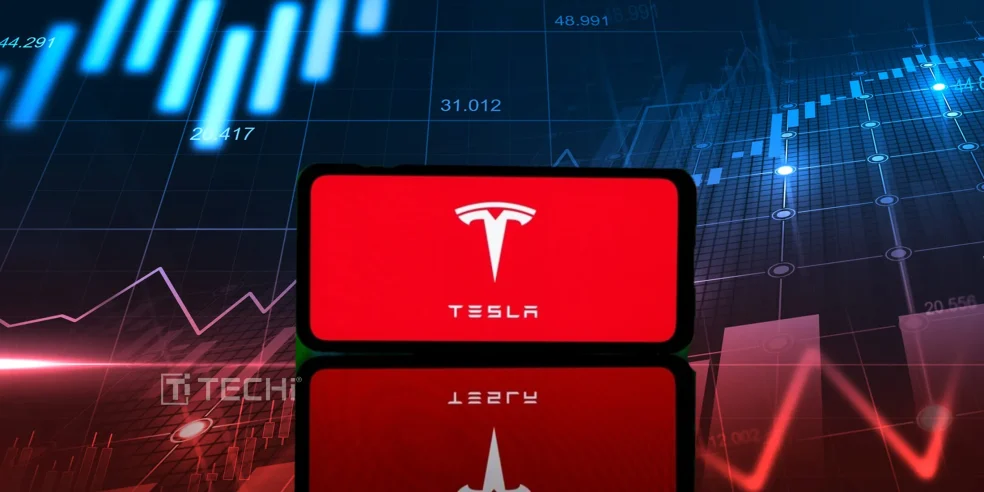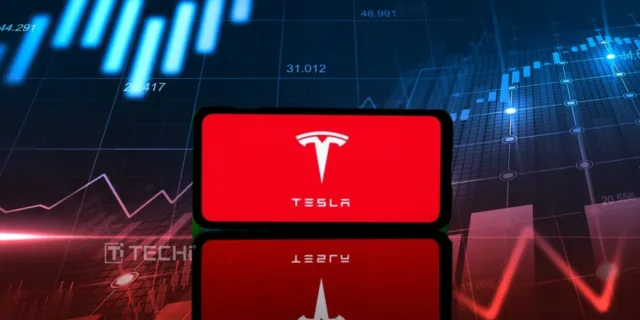
Tesla stock always reminds Wall Street that volatility is in its blood. It’s dreaming of flying on Robotaxi one day, and the next day it is weighed down by lawsuits and Chinese competition. With escalating legal threats and falling demand from the globe’s biggest EV market, Tesla shares are somehow tiptoeing upwards. It seems like investors are so used to Tesla’s unpredictable nature that they tend to ignore the noise and believe in the vision.
Tesla’s Technical Scenario
Tesla is currently trading at $352.24, having gained 1.6% over the last 24 hours. The share experienced an intraday range of $343.90 to $353.61, and volume more than 76 million shares, highlighting increased investor appetite. From a technical perspective, Tesla is trading well above its 20-day moving average, with price action reasserting the important $350 support level, which recently functioned as resistance.
Momentum indicators are presenting a cautiously optimistic scenario. A recent moving average on the verge indicates strength, while Relative Strength Index (RSI) at 55 point towards balanced conditions with room for more to make additional improvements before overbought pressures start to develop. Support can be seen at $340, with short term resistance at $362 and a more significant barrier at $375, which matches June highs. A close at or above $360 might draw in momentum buyers and algorithmic traders, setting the stage for a test of the $380 level.
Legal Challenges & Sales Pressure
Though Tesla’s technicals indicate strength, its fundamentals are obscured by increased legal hazards and wobbly China demand. A California jury recently delivered $243 million in damages for a fatal 2019 Autopilot crash for which Tesla was 33% liable for compensatory damages and fully blamable for disciplinary damages. Court documents indicated that Tesla previously turned down a $60 million settlement, which highlights an aggressive legal approach that may prove pricey as similar suits play out.
On the other hand, Tesla’s second-biggest market, reported a 27% year over year drop in insurance registrations during the week of August 18–24. Though sequential quarterly sales are improving modestly, competition from local EV giants such as BYD and Nio carry on to wear down Tesla’s share. This introduces another level of uncertainty to Tesla’s worldwide growth path.
Tesla’s Innovation Momentum
In spite of all these hurdles, Tesla is moving ahead with its innovation pipeline. Tesla is getting ready to roll out its Full Self-Driving (FSD) software in Australia, and this could provide a seal of approval for the global scalability of its autonomy platform. Meanwhile, Tesla has also modernized the development process of its Optimus humanoid robot, using a vision-based training system like its vehicle AI systems. As per the experts, this strategy would speed up learning and improve real-world capabilities, which could enhance Tesla’s placement in industrial and commercial robotics.
Musk’s aggressive schedule for autonomy continues to be a fundamental bullish catalyst. The deployment of FSD Version 14, along with pilot robotaxi testing in Austin, is a significant catalyst that can prove Tesla’s long-term valuation story. If Tesla’s execution aligns with the investor’s desire, it’ll be a win-win situation for both.
Bullish potential
For now, Tesla shares look poised to trade between a $340–$365 consolidation range, as the market balances with its optimistic AI and robotics advancements against the legal headwinds. The positive scenario foresees a breakout towards $380, which is supported by advancements in autonomy, margin stabilization, or positive news at future investor events.
On the other hand, in a worst scenario, further weakness of the EV sales or aggressive macro headwinds could push the stock back into the $325–$330 range. For the time being, Tesla’s rally mirrors investors’ passion for its innovation-led future despite legal threats and competitive challenges.
Tesla’s survival in the ups and downs of the stock market is as captivating as it is confusing. The optimism rooted within its valuation is based on progression in autonomy, robotics, and AI, all of which are high-risk and long term stakes. The immediate challenges, from regulatory hurdles to intense EV competition, are not insignificant and can significantly affect future profits.
Still, Tesla somehow succeeds in appealing to its faithful, and it seems like investors prefer making a bet with Musk, rather than betting against him. The actual test down the road isn’t whether Tesla will innovate, there’s no doubt about that, but whether it will do so while keeping its increasing liabilities at bay.








